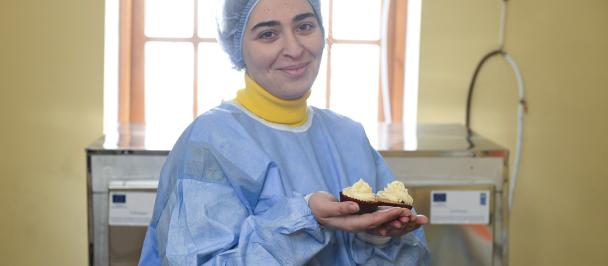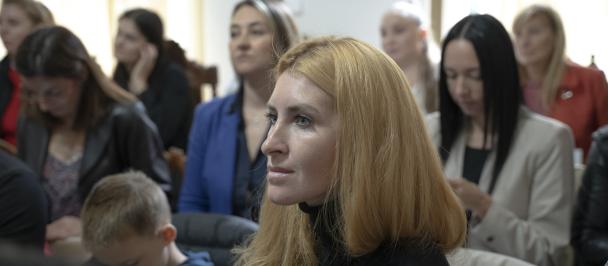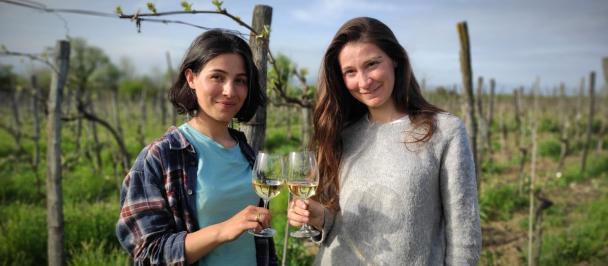Georgian women at the forefront of peace journalism
Path to the Future
December 1, 2022
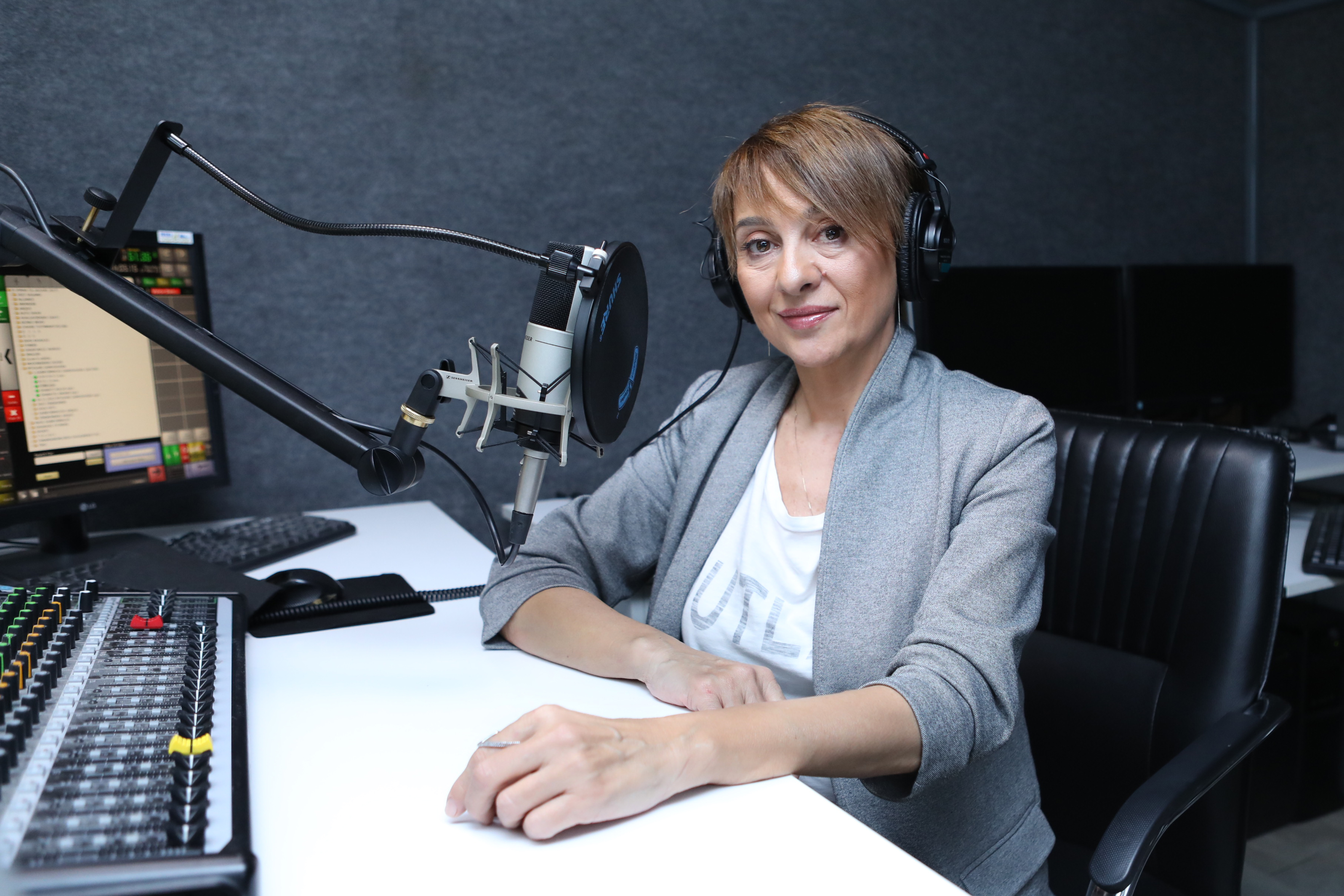
Media has a crucial role in shaping public perceptions, especially in conflict-affected societies. Long-serving Georgian journalist Maia Pipia, displaced from Abkhazia and now living in the Samegrelo region, reflects on the role of journalism in times of protracted conflict, barriers affecting their work and the way forward.
Maia left her native Sukhumi and started her life from scratch in the aftermath of the 1992-93 armed conflict at the age of 26. Trained in Georgian philology, she worked as a teacher and tried doing business, before entering the field of journalism in 2007 to deliver news for Zugdidi-based Radio Atinati.
Maia soon began to implement media projects together with her Georgian and Abkhazian colleagues. Having amassed significant experience in such cross-divide journalism, Maia and her colleagues in Atinati now broadcast, among others, stories from both Abkhazia and Samegrelo regions. Their latest program focused on local grape varieties.
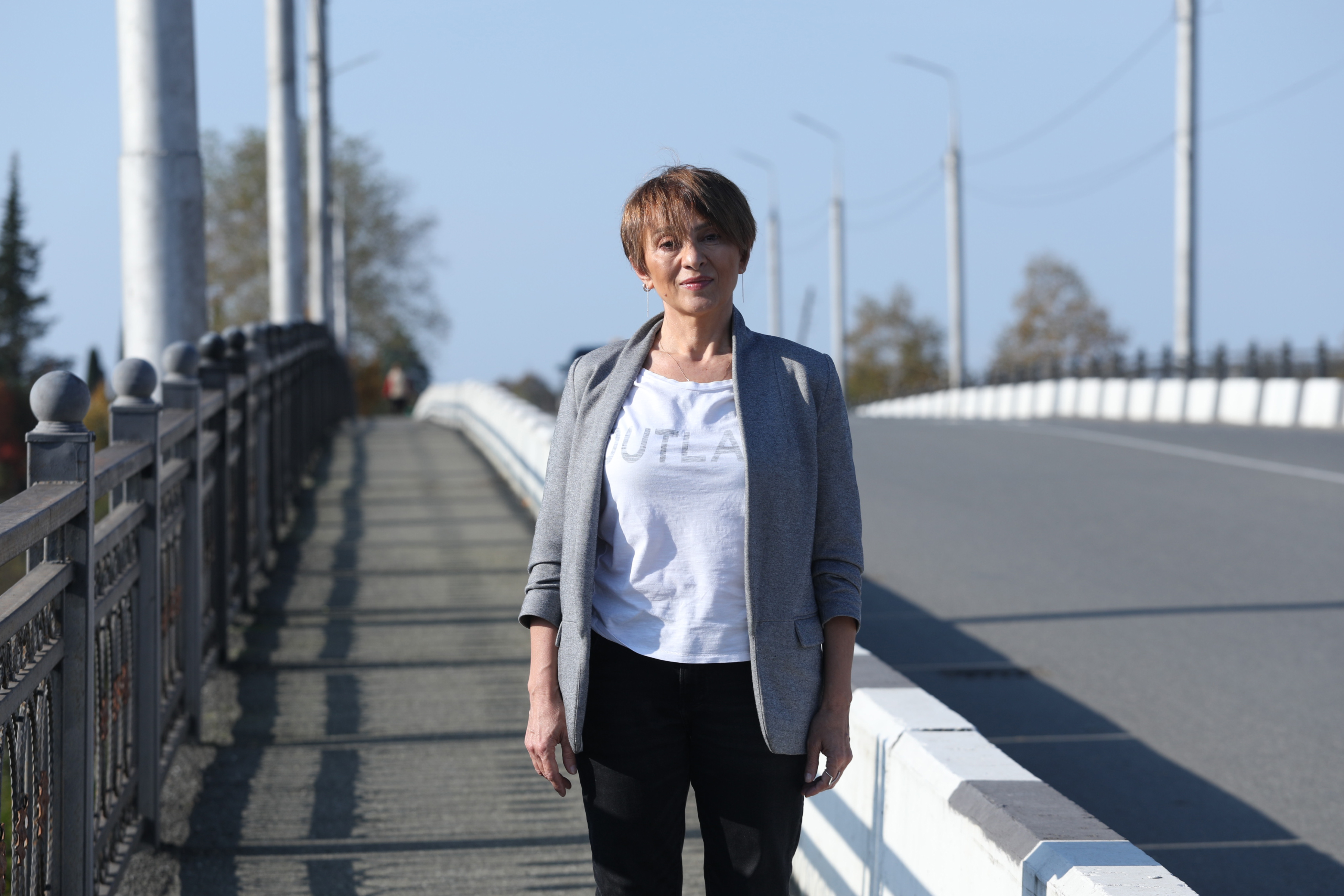
Maia Pipia at the Sajvaro bridge in Zugdidi, reminding her of her childhood travels between Sukhumi and Zugdidi.
Maia believes that against all odds and barriers, relations between Georgian and Abkhazian media professionals have made some progress. In recent years, she says, journalists started to cover critical stories, including social issues, energy deficit, and healthcare. “We have made a great step forward - years ago, the cooperation started with a simple shared word file, now we are making joint multimedia stories.”
“When they see [on the other side of the divide] that you are ready to put efforts to build relations with them, to listen to what they have to say (even if that sometimes may not seem acceptable for you), to deliver their story, then a different kind of trust appears.”
She argues that along with following the ‘do not harm’ principle, this is what it takes to do peace journalism: “let them say what they would like to say. Do not alter the context of their remarks. This is what it takes to get trust.”
Joining Hands with Younger Colleagues
Maia is hopeful to see her younger colleagues working for the common cause. She believes that younger generations carry a crucial role in peace journalism.
Tinatin Bukia and Salome Partsvania work together with Maia in Radio Atinati. As Maia prepares radio broadcasts, Tinatin and Salome deliver video stories and multimedia articles.
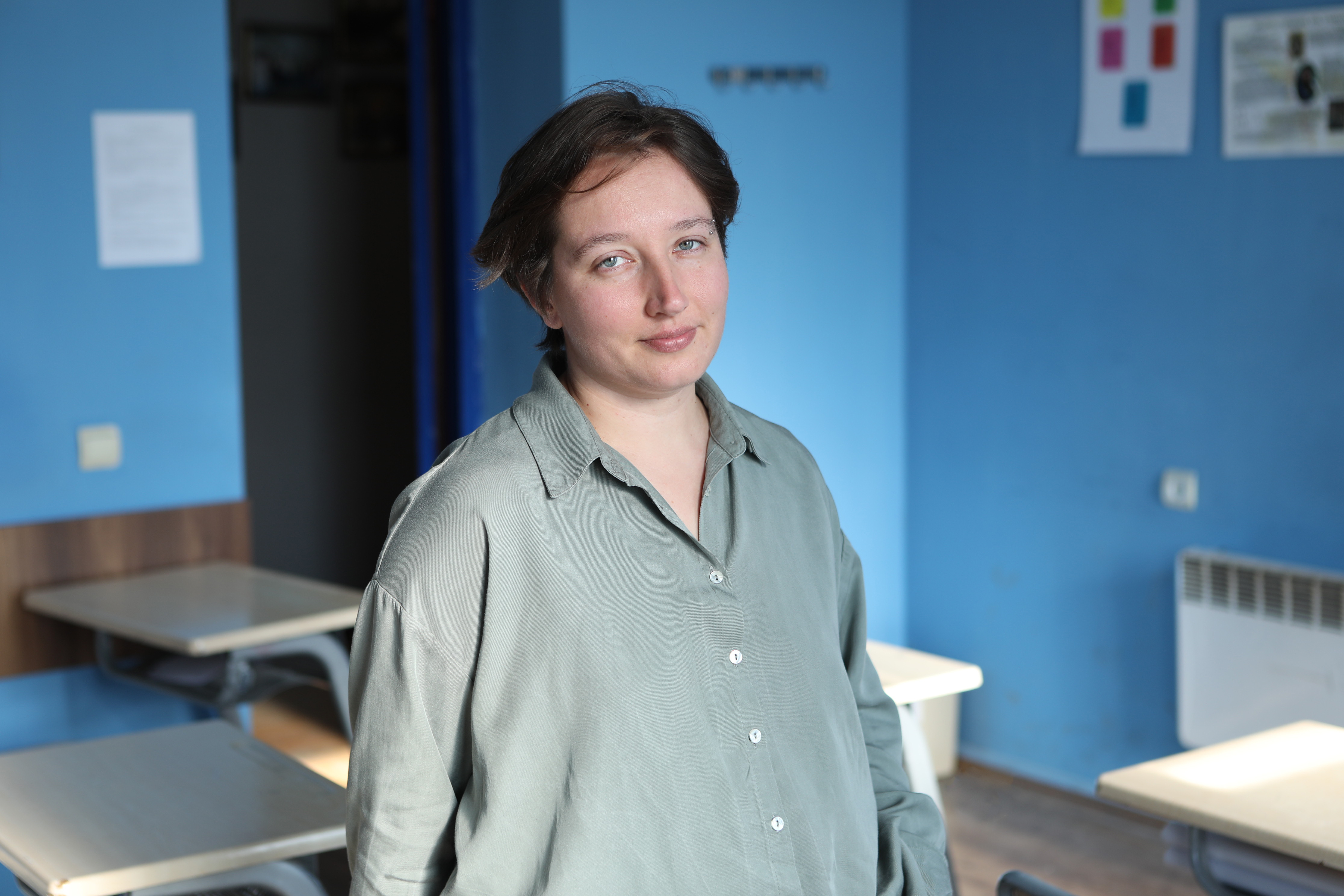
Salome Partsvania, journalist at Radio Atinati.
“Through Journalism, I try to find the points of contact that may enable us to discover one another again”, says Salome. In this process, she continues, “I try to learn from experienced people like Maia. Not just our newsroom but also other journalists should have the opportunity to learn from Maia’s experience and that of her Abkhazian colleagues”.
“Knowing that even a single person from Abkhazia could read my article is a great motivation for me”, argues Tinatin. She explains that journalists have a gap to fill, as young Georgians and Abkhaz lack information on common values and traditions that were evident and familiar to older generations.
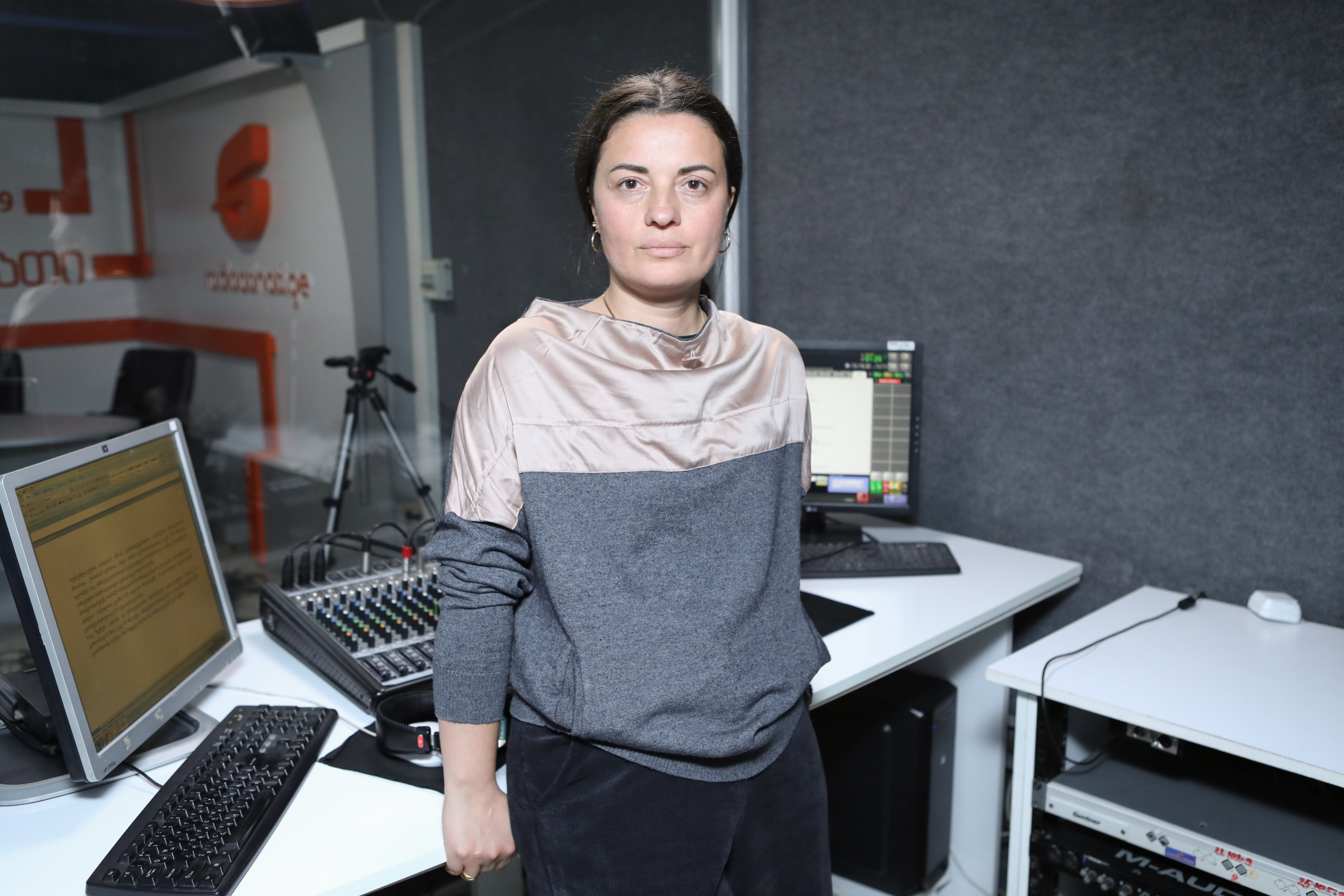
Tinatin Bukia, journalist at Radio Atinati.
Gazing Toward the Future
But while observing some progress, Maia regrets media across the region has largely kept dealing with the troubles from the past, ignoring the prospects towards the future. “Perpetually focusing solely on the past, without having any regard for the future, will further tear us apart.”
In her view, negative undercurrents dominate much of the peace and conflict-related stories in media, taking conflict-affected communities back to the past. She believes “a road gazing towards the future shall be in sight.”
“I understand dramatic events happened in the past, and what we are witnessing now is the result of all of it, that people, including myself, have traumas (and the events in Ukraine felt déjà vu that took us back), but we should somehow still find points of mutual interest. We should see the road to the future,” Maia argues.
"We should see the road to the future"Maia Pipia, journalist at Radio Atinati
Disclaimer: This story was produced with the financial support of the European Union and UNDP under the EU4Dialogue project. Its contents do not necessarily reflect the views of the European Union and UNDP.

 Locations
Locations

